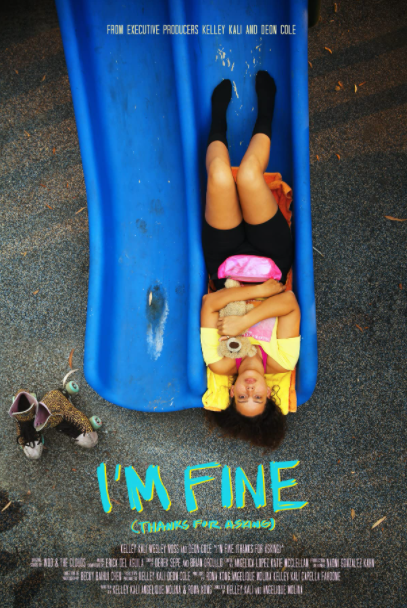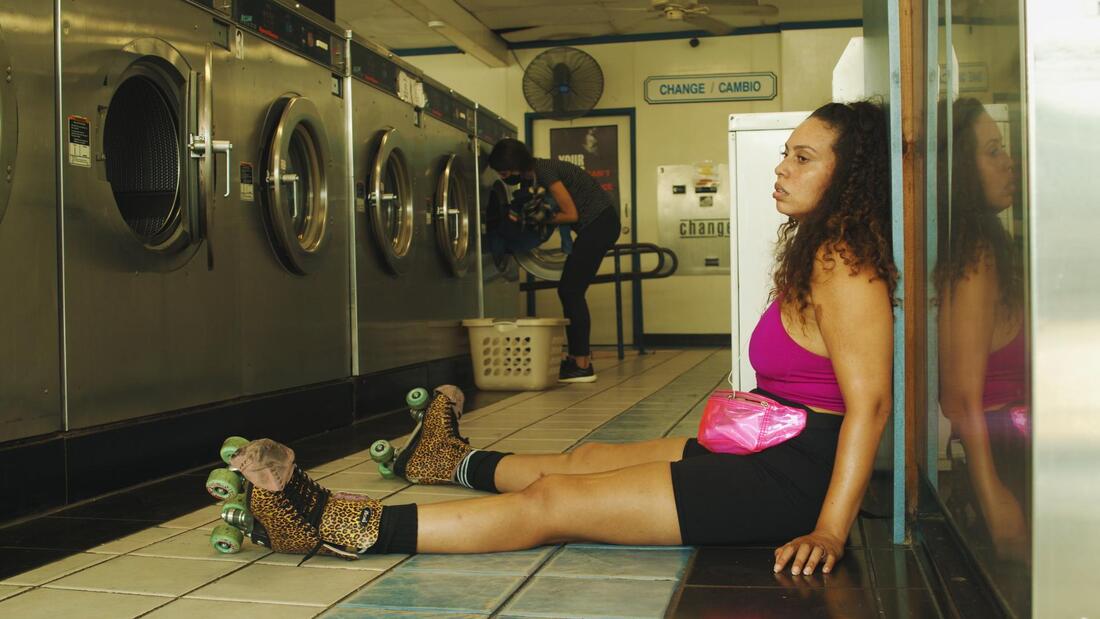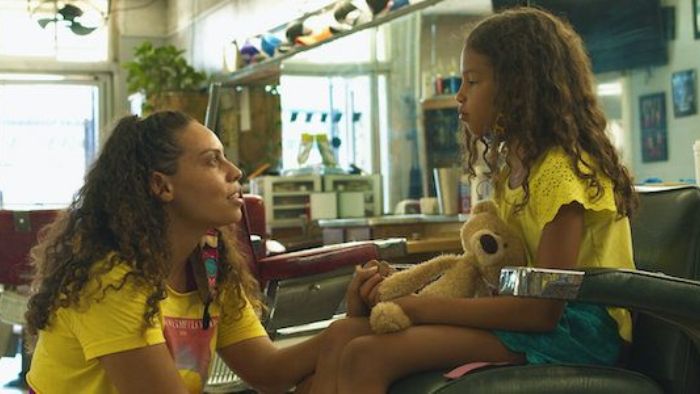Danny (co-director Kelley Kali) is a single mother, widowed at an early age with a young daughter, Wes (Wesley Moss). We wake up with them on a quiet sunny morning in a breezy tent. But we soon learn this quiet idyll isn’t a cosy camping trip. They have nowhere else to go. Dropping Wes off with a babysitter she can’t pay, Danny heads off to the day’s graft braiding hair on people’s front porches. She needs to scrape enough money together to pay the deposit on an apartment and put a roof over their heads. After being let down by a customer she faces an almost impossible task – raise $200 by the end of the day or lose the apartment and remain houseless. The film follows Danny in her quest, and in doing so peeks into the lives of those she encounters. All are living paycheck to paycheck, knowing that their position in life is precarious. The difference though is that Danny is right on the precipice. She is constantly in motion, skating between the fixed locations of the people who at least have a home or a business. She is endlessly hustling, always physically exerting herself. This constant movement gives us the sense of someone unable to settle, either physically or emotionally. This is an embodiment of her state of wellbeing, unable to rest for even a moment, having to keep moving to stay alive. The vibrant visual style of the film contrasts with the themes of the narrative. Sunshine bathes the streets and Danny wears dazzling colours as she skates from place to place. But underneath is financial and housing instability and fractured wellbeing. Communities of colour have been particularly affected by the Covid-19 pandemic and this is central to the film. This disparity also shows itself in the title of the film. “I’m Fine” is a phrase Danny says in a few different ways throughout. Although things may look ok on the surface, bright and vibrant, all is not fine. While the main role is played convincingly by co-director Kelley Kali (who has excellent rollerskating skills), supporting parts were played by crew members who struggled to be entirely convincing. The quality is unfortunately affected as a result as it undermines the emotional punch of the film. At least we’re reminded that this is a low budget indie film and is a labor of love and hard work. The pandemic is the backdrop of the action but it’s not the main focus. Characters are shown wearing masks and keeping their distance. It feels strange to see on screen but it’s sure to become the new normal, we can’t expect films to pretend it never happened. The risk is that we all sit in judgement of characters for taking their masks off too soon, getting too close, or breaking any other Covid guidelines. It also raises the question of how much it enhances or impedes actors. Will actors have to enhance their eyes or their physical actions to get the same level of emotion across? Will this element be worked into scripts so that characters can conveniently remove masks at key dramatic moments? Time will tell, but “I’m Fine (Thanks for Asking)” pulls off a good balance of acknowledging the pandemic’s effects on daily lives without making it the entire focus. Perhaps a bit meandering in places and somewhat let down by passing characters’ acting abilities, this film has an enormous heart. It shines a light on the struggles that people, particularly women of colour, are facing just to keep on living during this terrible pandemic. Comments are closed.
|
AuthorHi, I'm Caz. I live in Edinburgh and I watch a lot of films. My reviews focus mainly on women in film - female directors or how women are represented on screen. Archives
December 2021
Categories
All
|





 RSS Feed
RSS Feed
